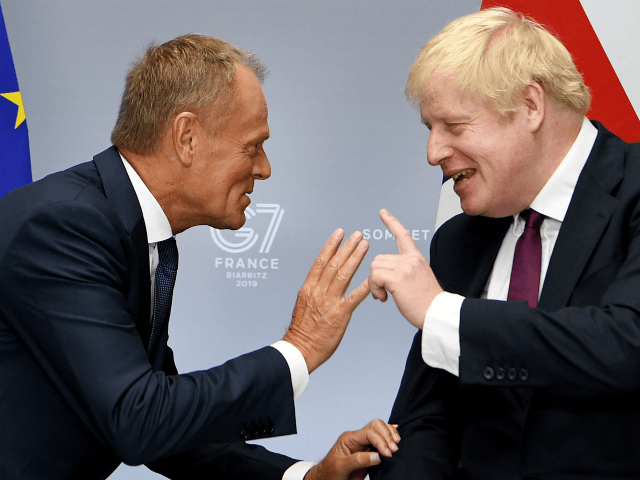The EU is expected to delay a decision on whether to grant an extension of Article 50 amidst recent election uncertainty, whilst France remains an obstacle to a long Brexit delay.
Reports from Thursday morning suggested that European leaders were preparing to announce their decision on Friday following a meeting of ambassadors in Brussels. However, Prime Minister Boris Johnson’s challenge to Labour leader Jeremy Corbyn to back a pre-Christmas general election last night has put that decision on hold until likely early next week.
Mr Johnson has said that he will table a motion on Monday calling for a snap election on December 12th, in return for MPs having until November 6th to pass his Brexit deal. The proposal will need a two-thirds majority in the House of Commons to pass, meaning support from the Labour Party.
On Friday morning, Labour’s spokeswoman Diane Abbott told the BBC that her party would be blocking the motion until the government promises that there will not be a clean-break Brexit. If Jeremy Corbyn and his Labour Party reject a general election, the Conservative government will reportedly go on strike.
A diplomatic source told The Times in an article published on Friday: “As a result of the Corbyn move it will be harder to achieve consensus. We will all lament the lack of clarity and not take a decision. There will be a lot of discussion over the weekend and potentially a decision on Monday or Tuesday.”
“We are increasingly under pressure so we can’t drag this out,” an EU source said, affirming that even with the change in British political climate, a decision will be made next week.
Even if European leaders do not grant the extension today, ambassadors will still discuss the duration of the extension at the Brussels meeting. France remains the most hardened to the idea of granting a long extension to January 31st, 2020, as requested in the Remainer-backed Benn Act.
Amélie de Montchalin, France’s European Affairs minister, told RTL radio on Thursday night her government wants to see “a clear scenario” before making a decision.
“Our position is that simply giving more time, without political change, without ratification, without an election, would be useless,” she said in comments reported by the Associated Press.
Most European leaders are said to agree to President of the European Council Donald Tusk’s recommendation of offering a “flextension” to January 31st, expiring any time before then at the point the British parliament agrees to the exit deal.
French President Emmanuel Macron is keen to progress his European agenda and sees the Brexit situation as dominating EU affairs and reportedly wants an extension no longer than to November 15th. BBC politics editor Laura Kuenssberg claimed on Thursday night that Mr Macron and Mr Johnson were privately discussing the shorter extension.
Ms Kuenssberg said on the BBC’s Brexitcast: “Someone told me that Macron texted Johnson this morning and said he wanted a short extension. He wanted it done in November.
“Now, I do not know if that is true or not, but there is clearly a view based on evidence. There’s a genuine belief in Government that Macron is pushing very hard for a short extension. But they don’t expect that to happen.”
In either eventuality of a short or long extension, the government admitted that the UK will not be leaving the EU on October 31st as Prime Minister Johnson had pledged “do or die”.

COMMENTS
Please let us know if you're having issues with commenting.